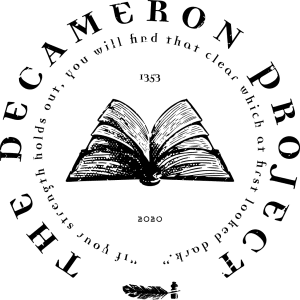SPRING
She fancied herself a superhero: legs wide, elbows pointed, chin tucked as she admired her shadow. Today was tutu day and its tulle filtered the sunlight into a loud magenta ripple against the grey pathway. As her papa tugged her forward, looping a hand in the crook of her arm, her boisterous, equally pink roller skates glided her across the pavement. Her tutu fluttered like a cape and she laughed and laughed and laughed in delight until she bent at the waist and her giggles echoed up, up, up against the apartment buildings flanking the courtyard. Her shadow mirrored her, the magenta cloud around its waist bobbing in amusement. Papa’s eyes crinkled, too. Papa and daughter headed back inside and he scooped her up when she struggled to shuffle across a patch of grass.
SUMMER
She fancied herself a birdwatcher: toilet-paper-roll-binoculars in hand and a safari hat on her head, tilted askew by her pigtails. Papa picked her up and brought her under a tree to point out all the birds that flocked to their little courtyard. Surprisingly, the city pigeons didn’t come today–which is fine, because she was sick of those anyway after one of them pooped on her favorite pink hair bow. Instead, there were mockingbirds with bright white stripes in their brown wings and fan-shaped tails, petite butter-colored warblers waddling in the branches, and the ever-present plump house sparrows, all framed through the warped circles of her cardboard binoculars. The birds called out to her–chip, chip, chip, chip–as they settled above her head.
When her binoculars started to wilt in the humidity, mama came out to the courtyard, too. She held special golden paper that winked sparkles whenever sunlight managed to breach the thick canopy of leaves above their heads. Mama settled down onto a nearby picnic table and pulled daughter onto her lap. Together, they folded a glossy paper crane as papa watched behind their shoulders. He looked up and spotted a squirrel napping just above daughter’s head, bushy tail draped across the branch. Right before papa could get daughter’s attention, though, she leapt up with the paper crane and ran across the courtyard to introduce it to the mockingbird.
FALL
She fancied herself an explorer. Today mama said she would teach daughter how to press leaves so they lasted forever. Papa and daughter journeyed outside to fetch the best leaves in the courtyard. Daughter planned to paste all her leaves in her journal the way her teacher said Lewis and Clark once did. It wasn’t long before daughter had a pile of freshly-plucked red maples and yellow oaks pinched delicately between her fingers and leaf dust in her shoes from stomping all the crispy brown leaves on the ground.
Eventually, papa and daughter had looped the entire courtyard and taken a leaf from all but one tree, souvenirs from their journey. Daughter turned to go inside but papa pulled her back to the very corner of the courtyard, where a ginkgo tree slumped, its fan-shaped leaves pulled toward the ground by ripe yellow berries. Daughter backed away immediately, the sour stink of rotting gingko fruit flooding her face. Papa wanted to take some berries home with them; the ginkgo nuts inside the berries were his favorite snack.
Daughter scrunched her nose and ran back inside where mama waited with heavy books for leaf pressing and a steaming cup of peppermint tea. Together, they layered the leaves in the book, one on each page. Papa came upstairs a short while later, boiled the gingko nuts for himself–daughter refused to try any–and held out a yellow, fan-shaped leaf for daughter. She smiled and carefully opened the book again to sandwich it with the rest.
WINTER
She fancied herself a visionary, always dreaming up those bigger and better things. Today, she was confident she could make the biggest snowman ever right in the middle of the courtyard for all her neighbors to admire. There was snow blanketing the courtyard, sure, and a light powder dusting her pink pom-pom hat, but the temperature was rising and snow kept wilting into slush in daughter’s hands.
Daughter romped around, undeterred, wetness dripping from her mittens as she scraped the ground for all the snow she could gather. Papa called her over. She came running and tucked in her chin to appraise the scene before her: papa had managed to shape the slush into an army of teeny two-ball snowmen, each with gravelly bits for eyes and sagging twigs for arms. With an impatient swipe of her feet, daughter knocked them all but one over. No, her snowman had to have three balls for its body and it had to be BIG–her plan insisted on this. Daughter stooped to get a closer look at the lone survivor of her massacre. He wouldn’t do, she decided; he was barely the size of her hand. She stomped on him decisively. The temperature never stopped rising that day. There were no more snowmen.
***
MANY SPRINGS LATER
Today, she does not know what she fancies. She is stuck inside, presumably for a while, and her own thoughts have gotten louder to fill the silence. She has always thought about the future, will always think about the future, but there are a lot more questions about the future that she didn’t have before. It is the semantics now that she worries about: what does she fancy? How can she do what she fancies? Where does she go to learn how to do it? The questions follow this order like steps in a dance, one she has run through tens of thousands of times over and she feels the rut her inner self has consequently paced into her brain.
Daughter gets out of her chair–and winces when both knees and back crack simultaneously–and walks to the window, takes a look into the courtyard three floors down. It is smaller now, because of age or height or perspective or maybe some combination of the three. The trees are still budding and little pink dots speckle the air. A scrawny twitchy pigeon is the only bird on the branches today (and yes, she still holds a grudge towards them).
Papa joins her after a while, asks what she’s thinking. Her thoughts are both nothing and everything, but she goes with nothing. Papa points out the window, out to the courtyard, asks if she remembers. It takes her a minute to shake free from her mind-rut and into her memories. They come back to her slowly and many are hazy from time: the summers spent skating and the springs spent birdwatching and the autumns spent exploring and the winters spent dreaming. It’s been a while since they went to the courtyard, either because “too cold” or “too hot” or “too lazy” or “too busy.” The skates have become too small, the pressed leaves are buried deep in the closet, and the little snowman army has still not been resurrected. And those disgusting city pigeons are back.
Daughter studies the reflection in the window, her and her father a ghostly shadow on top of the courtyard. The years have changed them both: her taller and sharper and coarser and cynical, him bent and thin and eyes crinkled so they permanently smile at the corners. Time has run away from them, but these days, perhaps because there is nothing to do, everything stands so, so still. Daughter cracks the window. The air is both cold and sticky, like nervous sweat. Nevertheless, she turns around, faces her father, grabs the pink mask off her windowsill.
“Papa,” she says. “Could we go out to the courtyard?”





